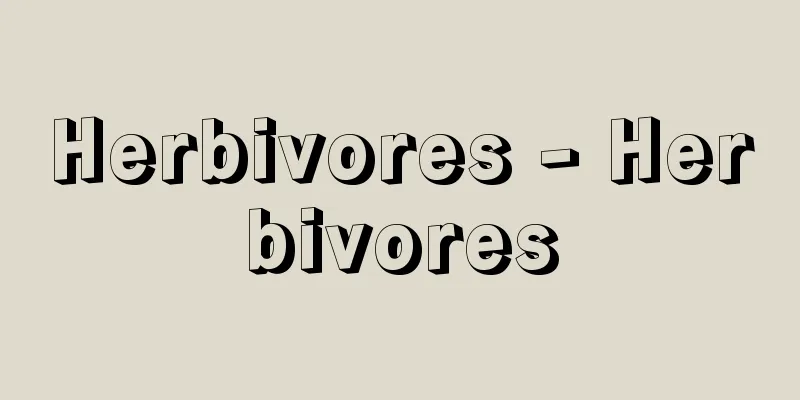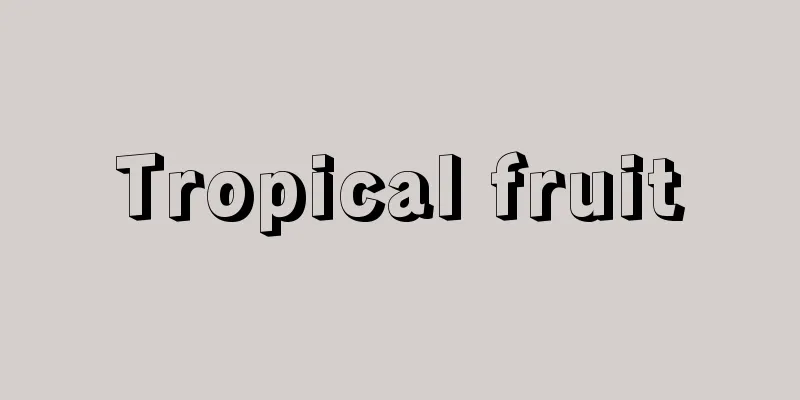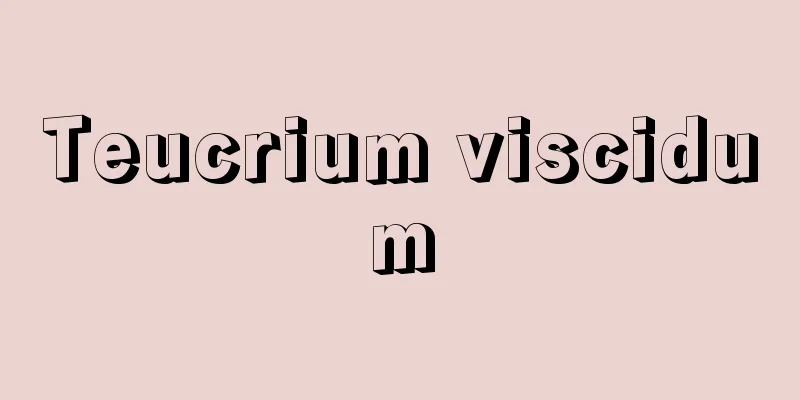Herbivores - Herbivores

|
This refers to animals that consume plant-based foods. This type of diet is called herbivorous. In some cases, the term herbivores is used to refer to animals that consume this type of diet, and is limited to those that consume herbaceous plants. Plant foods come in a variety of forms, including leaves, branches, stems, fruits, roots, flowers and pollen, nectar, and algae, and even among herbivores of the same taxonomic group, the feeding and digestive organs have diverse forms depending on the food they consume. For example, ruminant ungulates have large, separate stomachs. Also, rabbits have significantly large cecums. However, there are also universal characteristics. In general, the intestines of herbivores are long compared to the size of their bodies, and this characteristic applies not only to mammals but also to fish. It is common for mammals to have molars that are literally shaped like a molar. Plant matter is difficult to digest because it contains a lot of fiber. Large digestive organs and molar-shaped teeth are developed to counter this. There are also unique digestive methods. These include chewing the cud of ungulates and re-eating the feces of rabbits, mice, and other animals. Herbivores are primary consumers in ecosystems, ingesting organic matter produced by plants, while also forming a flow of matter by being eaten by carnivores or by the decomposition of their carcasses and excrement. Because plants are not mobile, herbivores can easily obtain food, but they rarely reduce plant life drastically except in cases of overgrazing by livestock or insect outbreaks that damage vegetation and crops. The population of herbivores increases or decreases depending on predation by carnivores, the amount of plants, and competition with herbivores of the same and different species. For example, the Fall Webworm, which eats roadside trees such as plane trees and cherry trees, is known to have a high mortality rate during its larval stage due to predation by small birds and paper wasps. [Kenji Takamura] [Reference] |Source: Shogakukan Encyclopedia Nipponica About Encyclopedia Nipponica Information | Legend |
|
植物性の食物を摂取する動物をさす。このような食性を草食性という。この食性の動物に植食動物の語をあてて、草本植物を食べるものに限定してこの語を用いる場合もある。植物性の食物には、葉、枝、幹、果実、根、花と花粉、蜜(みつ)、藻体などさまざまな形態があり、同じ分類群の草食動物のなかでも摂食器官や消化器官は食物に応じて多様な形態をしている。たとえば、反芻(はんすう)を行う有蹄(ゆうてい)類では胃が大きく分室している。また、ウサギは盲腸が著しく大きい。しかし普遍的な特徴もある。一般に草食動物の腸は体の大きさに比べて長く、この特徴は哺乳(ほにゅう)類だけでなく魚類にも当てはまる。臼歯(きゅうし)が文字どおり臼(うす)状なのは哺乳類に一般的である。植物質は繊維質などが多いために消化しにくい。大きな消化器官や臼状の歯はそれに対して発達したものである。消化方法にも特異なものがある。有蹄類の反芻やウサギ、ネズミなどの糞(ふん)の再食がそれである。 草食動物は生態系のなかでは一次消費者であり、植物の生産した有機物質を摂取する一方、肉食動物に食べられるか、またその死体や排出物が分解されることによって物質の流れを形成している。植物は活発に移動しないので草食動物は容易に食物を得られるが、家畜の過放牧や昆虫の大発生による草木や作物の食害以外には、極度に植物を減らすことは少ない。草食動物の個体数は、肉食動物による捕食や、植物の量、また同種・異種の草食動物との競争などによって増減する。たとえば、プラタナスやサクラなどの街路樹を食い荒らすアメリカシロヒトリは、その幼虫期に小鳥やアシナガバチの捕食によって死亡率が高くなることが知られている。 [高村健二] [参照項目] |出典 小学館 日本大百科全書(ニッポニカ)日本大百科全書(ニッポニカ)について 情報 | 凡例 |
<<: Bookplate - Zoshohyohyo (English spelling)
Recommend
Society on slavery
A social system based on slavery. Slavery was the ...
Kameda Stripes
…The southern region of Chinoyama is known as the...
Apolinario Mabini (English spelling)
1864‐1903 A philosophical leader of the Philippine...
Ibel, HG - Ibel
...The group's name, derived from the Hebrew ...
Ophioplocus japonicus (English spelling) Ophioplocusjaponicus
…Most species are free-living, but many species l...
Goette's larva
… They are hermaphrodites, with both male and fem...
Abenokurahashimaro - Abenokurahashimaro
Year of death: 17 March 649 (5 May 649) Year of bi...
Abies japonica - Abies japonica
An evergreen coniferous tall tree of the Pinaceae...
de Vries, M.
…At the beginning of the 19th century, Matthijs S...
Herakleia (English spelling)
...Population: 77,000 (1994). The city was founde...
Crushing
… The objects to be crushed, i.e., raw materials,...
Dilute Nitric Acid - Kishosan
…The reason why gold, platinum, etc. dissolve in ...
Qingzhen Si (Qingzhen Si)
The name of an Islamic temple in China. Also calle...
Radiation monitor - Hoshasen monitor
Radiation monitoring is not only used to ensure th...
Ranjit Singh
1780‐1839 Founder of the Sikh kingdom that was pow...









